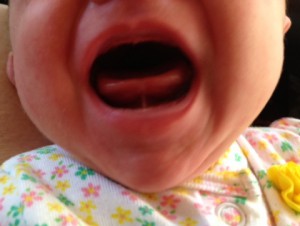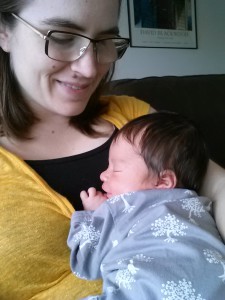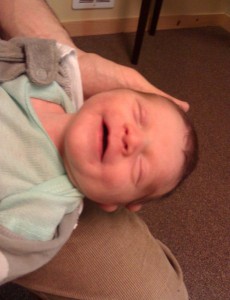
Anterior tongue tie
The medical term for tongue tie is “ankyloglossia” which literally means “anchored tongue.”
Most health care professionals and many lactation consultants do not know how to evaluate for ankyloglossia.
Obvious does not mean severe. “Obvious” simply means the frenulum is attached near the tip of the tongue making it clearly visible.
An anterior tongue tie refers to attachment near the tip of the tongue. Posterior tongue tie refers to attachment at the base of the tongue.
If the frenulum is attached to the back of the tongue (posterior) it can cause even more restriction than if it’s attached to the front of the tongue (anterior)
There is no such thing as a mild tongue tie. Usually if someone says the tongue tie is mild, that means that the person doing the evaluation isn’t sure if it’s causing a restriction.
Tongue ties affect much more than breastfeeding.
Where the frenulum attaches at the floor of the mouth can have as much or more impact than where it attaches to the tongue.

Frenulum attached to lower gum ridge causing trough in tongue.
Sometimes the frenulum can be attached to the back of the lower gum ridge as well as the floor of the mouth.
The frenulum does not stretch.
No one “grows out of” ankyloglossia.
The procedure to revise the frenulum so the tongue can move properly is called a frenotomy. It’s also commonly referred to as a revision. (It may be called different things in different parts of the world.)
The frenotomy can be done in about 2 seconds by clipping the tissue. If laser is used, it’s a little longer. It is never too late for a frenotomy!
The frenulum is NOT part of the tongue—the tongue will not be clipped during a frenotomy.
The frenulum usually has few nerves and blood vessels.
You can’t tell by looking if baby needs frenotomy.
A frenulum can not “grow back” once it’s clipped. It can, however, heal in such a way that it continues to restrict the movement of the tongue. It is important to keep the wound open during the healing process.
The frenotomy is often just the beginning of the path to full tongue function. Body work and time to learn new skills are often necessary.
There are no documented reports of any complications from a frenotomy.
In some parts of the world, ankyloglossia is commonly remedied with a long fingernail!
See also, “Squeaker: A Story about a Tongue Tie Release.”
 By the time I saw Renee, I’d already been to 4 lactation consultants and I was losing hope I’d be able to breastfeed my baby girl for even another month, let alone her first year. We were on week 9 of pain, frustration, and tears. When Renee said my girl had a tongue tie, I didn’t quite believe her for a moment. Then I wanted to cry, I was so relieved to have a concrete, fixable solution. Continue reading
By the time I saw Renee, I’d already been to 4 lactation consultants and I was losing hope I’d be able to breastfeed my baby girl for even another month, let alone her first year. We were on week 9 of pain, frustration, and tears. When Renee said my girl had a tongue tie, I didn’t quite believe her for a moment. Then I wanted to cry, I was so relieved to have a concrete, fixable solution. Continue reading 



